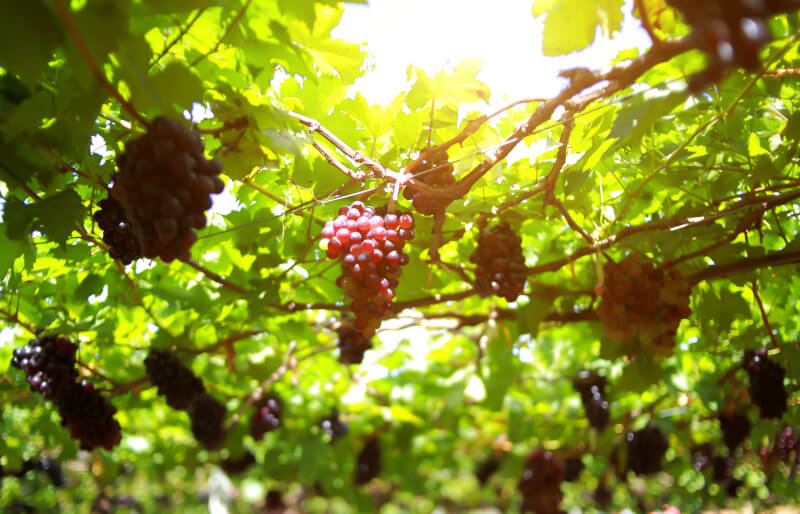When we think of miraculous drink transformations, Jesus turning water into wine immediately comes to mind. But have you heard of Dr. Thomas Bramwell Welch? He didn’t turn water into wine; instead, he turned potential wine into a non-alcoholic substitute.
Dr. Welch Wore Many Hats in Vineland, New Jersey
He was not only a medical practitioner and dentist but also a dedicated Methodist preacher. Given the strong anti-alcohol stance of Methodists during that era, Welch’s abstinence from alcohol posed an intriguing dilemma, especially since he was responsible for handling the communion wine. His determination was so steadfast that he couldn’t even bear to touch a wine vessel.
One incident served as a tipping point: a parishioner, clearly tipsy from overindulgence in communion wine, paid a raucous visit to the Welch household. This drove Welch to act.
Being a man of diverse skills, Welch took it upon himself to craft an alcohol-free alternative. Drawing inspiration from the newly-introduced pasteurization technique by Louis Pasteur, he painstakingly crushed, filtered, and bottled Concord grape juice in 1869. To ensure it remained alcohol-free, he heated the bottles to kill any yeast and halt fermentation.
His creation, initially intended for his congregation, was promoted to other churches. But, much to his chagrin, many clerics dismissed his “Unfermented Wine,” some even branding it heretical.
It Seemed Welch’s Grape Endeavor Was Destined to Be a Mere Footnote
While he kept producing limited quantities for some local congregations, it was shelved as a commercial venture.
Enter Charles Welch, Thomas’s son and a dentist by profession. In the 1890s, Charles began aggressively marketing the grape juice. Despite parental caution, Charles plunged into promoting Welch’s grape juice, further propelled by its showcase at the 1893 World’s Fair in Chicago.
With soaring demand by 1896, the Welch’s Fruit Juice Company moved its operations to a larger factory in New York. And when Thomas passed away in 1903, Welch’s had solidly entrenched itself in American culture. It became the darling of the Temperance Movement and even the diplomatic circle, with Secretary of State William Jennings Bryan serving Welch’s instead of wine at an official dinner in 1913. That same year, Welch’s also replaced alcoholic drinks in Navy canteens.
Today, with a sprawling product range from juices to jellies, Welch’s has turned into a household name, even cultivating cuttings from the original Concord grape vine in Massachusetts. Their annual revenue is a testament to the brand’s success.
All in all, Dr. Thomas Welch’s quest to provide an alcohol-free communion alternative has not only transformed church ceremonies but also left an indelible mark on the global beverage industry.
The Growing Acceptance of Alcohol-Free Communion
In today’s rapidly evolving world, many of us are turning toward choices that align more closely with our personal beliefs and health preferences. You might have noticed this in dietary trends, wellness choices, and even religious practices. One of these shifts is the increasing acceptance of alcohol-free alternatives in religious ceremonies, especially during communion. Historically anchored in tradition, the embrace of such alternatives speaks volumes about our collective ability to adapt and evolve. For you and your community, this could mean a more inclusive communion service, where everyone, regardless of age or personal choices, feels welcomed.
Health Benefits and Broader Inclusivity
Let’s face it, many of us today are more health-conscious than ever. And it’s not just about physical health but mental and spiritual well-being too. By choosing alcohol-free communion wine, you’re not just making a healthier choice, but you’re also ensuring that those who abstain from alcohol for health reasons can participate fully in the sacrament.
This is especially beneficial for members of your congregation who might be recovering from alcohol-related issues or those with certain medical conditions. Imagine the sense of belonging and unity this could foster!
A New Wave of Tradition
Traditions are powerful; they anchor us, give us a sense of belonging, and tie us to our ancestors. However, they’re also meant to reflect the society and times we live in. By integrating alcohol-free alternatives into communion, you’re not discarding tradition; rather, you’re enriching it. As a steward of your community’s spiritual journey, think of this as an opportunity to pave the way for a new, resonant tradition that future generations might cherish and uphold.
Embracing the Broader Community Inclusivity has become a significant buzzword in recent years, but it’s more than just a trend—it’s a way of life. Offering an alcohol-free communion option could be a simple yet profound way of saying, “We see you, we respect you, and you belong here.” Whether it’s the youth of your community, those who abstain for personal reasons, or individuals with health concerns, this gesture can resonate deeply. For you, this might mean a congregation that feels more connected, more appreciated, and more engaged.
Economic and Environmental Impacts
There’s more to consider here than just the spiritual and communal benefits. By supporting the production of non-alcoholic wines, you could be contributing to a niche yet growing industry, fostering economic growth in that sector. Environmentally speaking, the production processes might be more sustainable, given the reduced fermentation times and resources. For those of you who are environmentally conscious, this is an added benefit to ponder upon.
The Historical Context of Christian Views on Wine
Many might not know that between the years 1500 and 1800, a lot of Christians, be it Catholic, Protestant, or even Puritan, believed that wine was a divine gift for man’s delight and well-being. It’s intriguing that while drunkenness has always been frowned upon, it’s only in recent times that consuming alcohol became a moral dilemma for many in the Christian community.
You might find it fascinating that this shift in perspective began in the 18th century, a time when urban slums saw rampant drunkenness due to the mass production of alcohol and societal challenges. Given the circumstances, it’s hardly surprising many turned to the bottle.
The Curious Tale of “Bricks of Wine” During Prohibition
Here’s a fun tidbit for you: during Prohibition, grape farmers started selling what they coined “bricks of wine”. These were essentially blocks of “Rhine Wine”. The humorous catch? Instructions like “After dissolving the brick in water, avoid storing the liquid in a jug for twenty days, lest it becomes wine.” Imagine the cheeky smiles of those reading this!
Thomas Welch: An Advocate for Freedom
Besides his innovative non-alcoholic wine, did you know that Thomas Welch had a role to play in the Underground Railroad during the Civil War? His contribution to the abolitionist movement is commendable, as he actively assisted in freeing several slaves from the South. It’s always heartening to discover the broader impact people leave behind.
A Generous Gesture Amidst Economic Strain
Your heart might swell with pride knowing that during the challenging times of the Great Depression, Thomas’ grandsons showcased a grand gesture. Running the family business, they opted to award 10% of the company’s shares to each of their 300 employees. Now, that’s a lesson in corporate generosity!
The Birth and Rise of Grapelade
Here’s a delightful tidbit for your breakfast table: During World War I, in 1918, Welch embarked on a new culinary journey with “Grapelade”, a grape jam. This became an instant hit with the U.S. Army, so much so that the entire initial supply was bought for the troops. Post-war, the soldiers’ love for Grapelade persisted, paving the way for the beloved peanut butter and jelly sandwich we enjoy today. The relationship between Welch’s products and the military continued even during World War II, with the government claiming the majority of their goods.
Frozen Juice Concentrate: A Welch’s Innovation
Are you a fan of frozen juice concentrate? Well, next time you enjoy it, tip your hat to Welch’s! They were the pioneers in 1949, introducing the very first juice concentrate that you could freeze and later reconstitute into juice.
The Tale of the Concord Grapes
A little trivia about Concord grapes, which are integral to Welch’s products. Cultivated by Ephraim Wales Bull in Concord, Massachusetts, these grapes have their origin in wild New England variants. Interestingly, European grape types largely failed in America. Bull’s persistence is commendable, planting nearly 22,000 plants before striking gold. Though his grapes made him a celebrity, wealth eluded him. A poignant reminder that success doesn’t always translate to fortune.




